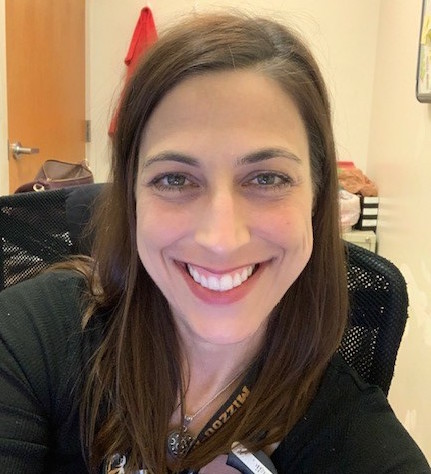
There’s something people don’t know about nurses, unless you are one. Even in the middle of a deadly virus, your first thought is for your family.
In my case, that was my son. I contracted COVID on May 2. My nerves were worn raw. I was overwhelmed with exhaustion. We’d been dealing with COVID in the nursing home for two months by that point.
On that day, I woke up with a fever, sore throat, abdominal pain, and body aches. As the day progressed, my symptoms worsened and I brought myself to urgent care to be tested. The rest of the weekend I slept and awoke on Monday only to be told that, yes, I was indeed infected with COVID.
I had all the classic symptoms — body aches, muscle pain, fever, shortness of breath, headache, cough, and sore throat — and they lingered for nearly five weeks. Some days were better, others worse, and it was always worse at night. The fatigue was awful and I mainly slept for the first three weeks. My son, currently home from college, was my caregiver, constantly checking on me and asking if I was OK with every cough he heard. He was terrified.
I banished myself to my bedroom and wore a mask when going into the common areas of the house. True to nursing form, I was handling the illness without too much worry until I thought about how my getting worse would affect my son. What if I developed a blood clot and suffered a stroke? What if I developed pneumonia and ended up on a ventilator? Who would take care of my son and what would my family do?
I wore my compression socks while in bed and obsessively checked my temperature and oxygen saturation. I taught my son to watch for signs of stroke in case things took a turn for the worse. I also reassured him that if I started to become acutely ill, I would go to the ER.
My family checked on me daily, brought me food, and worried every day. People I had not spoken to in years, reached out via Facebook and texts. So many people wanted to know how I was doing and offered to drop things off. I was blessed by the outpouring of support. I am the only person my family and close friends know who had COVID-19.
I have recovered now, so far with no apparent side effects. However, from time to time, I think about the possibility of long-term physical effects, especially with kidney, liver or neurologic problems that might develop. Fortunately, those are only fleeting thoughts. At times, I become paranoid and wonder if the infection has returned whenever I feel the slightest body ache or sore throat.
But, I am happy to report that one month after returning to work, I feel like my pre-COVID self and am symptom-free. I now find myself less stressed, less worried, and less overwhelmed because I have already been infected. Although my experience was rather benign, I am happy to say, “I survived COVID,” and am extremely thankful for the positive outcome.
For anyone fighting this illness, my best advice is to get plenty of rest, hydrate, and be vigilant of changes in your body that might be indicative of disease progression. Reach out to your loved ones for emotional support; being in isolation can wreak havoc on your mental well-being.
For the nurses, I would say this: Protect yourselves first! By protecting yourself, you are protecting your family and friends, as well. As exhausting as it can be to keep PPE on all day, avoid touching your face, and be diligent with handwashing. These steps are imperative to keep you healthy.
Julie Slavik, MSN, AGCNS-BC has over 18 years of nursing experience including acute care, home care, and insurance case management. She has spent the last five years working as a Clinical Nurse Specialist in long-term care for the MOQI Initiative, a CMS sponsored study (2012-2020), Initiative to Reduce Avoidable Hospitalizations of Nursing Home Residents.



